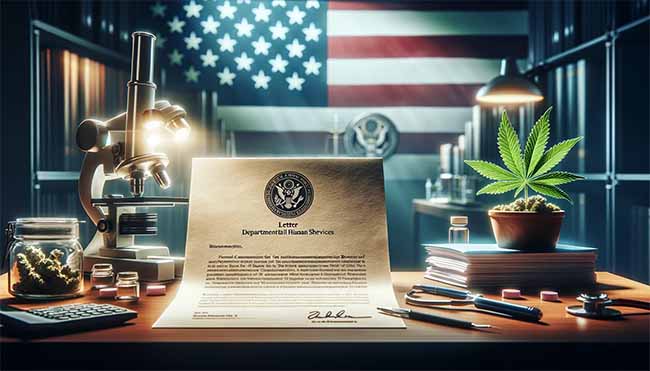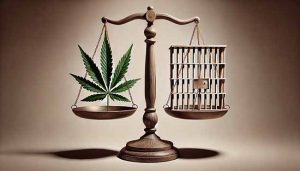U.S. Health Department Recommends Reclassifying Cannabis to Schedule III

In a landmark move, the U.S. Department of Health and Human Services has recommended reclassifying cannabis, specifically botanical Cannabis sativa L. as defined within the Controlled Substances Act (CSA), from a Schedule I to a Schedule III controlled substance. This recommendation, dated August 29, 2023, follows a thorough evaluation of cannabis under the CSA’s eight-factor analysis, which was spearheaded by the Food and Drug Administration (FDA) and supported by the National Institute on Drug Abuse (NIDA).
The recommendation to reclassify cannabis to Schedule III is based on its potential for abuse being less than that of substances in Schedules I and II, alongside recognized medical uses in treatment within the United States, and a lower or moderate potential for physical dependence. The decision comes after President Joe Biden’s request in October 2022 for an expedited review of cannabis’s federal scheduling status.
This proposal marks a significant shift in the federal approach to cannabis regulation, reflecting changes in societal attitudes and scientific understanding of cannabis’s medical utility and abuse potential. The reclassification would potentially ease research restrictions, modify legal implications for cannabis-related offenses, and acknowledge the evolving landscape of cannabis use and regulation across the United States.
The evaluation process took into account the widespread medical use of cannabis under state-authorized programs and emerging scientific evidence supporting its therapeutic benefits for certain medical conditions. It’s important to note that this recommendation does not include hemp, as defined by the 2018 Farm Bill, which removed hemp from the CSA’s definition of marijuana.

The FDA’s comprehensive analysis considered the chemistry, pharmacological effects, historical and current patterns of abuse, public health risks, and scientific evidence regarding cannabis. Despite recognizing the substance’s abuse potential, the analysis concluded that the public health risks associated with cannabis are comparatively lower than those of other controlled substances like heroin, cocaine, and certain prescription opioids.
This historic recommendation signifies a potential pivot towards a more nuanced and scientifically grounded federal policy on cannabis, which could have far-reaching implications for medical research, criminal justice reform, and the cannabis industry at large. The final decision on the reclassification rests with the Drug Enforcement Administration (DEA), taking into account international treaty obligations.





